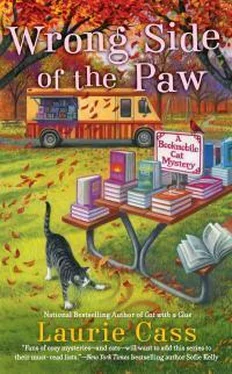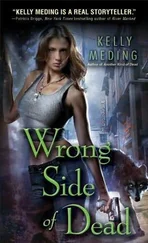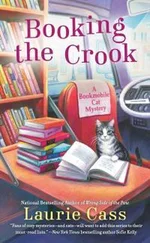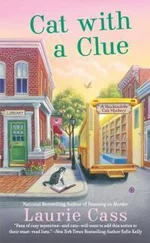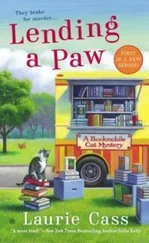Kristen and I exchanged a glance at her bitter tone, but before either one of us responded, Leese said, “I’m sorry, I shouldn’t have said that. Brad says he understands perfectly why he can’t come back to work.” She half smiled. “He said if he was in charge, he’d do the exact same thing. That the reputation of a producer of a food product has to be above reproach.”
I didn’t quite put beer on the same level as bread or milk, but I was sure many people would disagree with me. It was Rafe’s opinion that humankind had shifted from hunting and gathering to an agricultural lifestyle for the sake of brewing beer. After some research, I’d come to the reluctant conclusion that he might actually be right. And clearly the making of craft beer was becoming an important part of the economy in this part of Michigan. It was possible that the damage of one brewery’s good name could reflect on all of them.
“But what about Brad’s reputation?” Kristen asked. “If they can’t figure out what happened, will he be able to work as a brew master?”
“He didn’t do anything wrong,” Leese said fiercely.
“Well, duh.” Kristen rolled her eyes. “I’m just looking at the worst possible scenario.”
“She has a tendency to do that,” I told Leese. “It’s nothing personal.”
Leese nodded. “Okay, but he didn’t do anything wrong,” and this time we could hear the anxiety coating every word.
It was obvious that she was worried about her brother, but I thought there was a lot more to worry about. What about Leese’s own reputation? What would she do if her name wasn’t cleared of any and all connection to her father’s murder? Was Brad being unfairly scapegoated because of the murder? How many Lacombes were going to suffer because of Dale’s death?
Chapter 14
“Mrr.”
I zipped shut my backpack and gave my cat a pat. “Sorry, but you’re not going with me today.”
Eddie laid his ears back and halted the purr action.
“You won’t like it,” I told him. “Trust me. I’m going to drive downstate, talk to some strangers, and drive back. Probably seven hours of driving for an hour of talking.”
“Mrr.”
“Yeah, doesn’t seem worth it, does it? But it’s Monday and I have the day off. It’s a good day for a road trip. I’ve checked out a nonfiction audio book from the library so I get to listen and learn for hours and hours.”
Eddie rolled to put his back to me and curled into a tight ball.
“Love you too, pal.” I kissed the top of his head, picked up my backpack, and was on the road a few minutes later.
Shadow Divers , by Robert Kurson, kept me awake, interested, and occupied my brain so fully that I hardly thought about Rafe as I drove south on US 131 to Grand Rapids. At that point I hopped briefly onto I-96, then down East Beltline to where I turned off to find the address that my former boyfriend Ash had (sort of) helped me find.
When we’d paused to take a break on our bike ride the previous morning, I’d asked about the best way to locate someone who lived in an unknown city in Michigan. If I was going to help Leese and her siblings, I figured the first step was to talk to some of the people I’d put on my mental suspect list. In broad daylight, of course, and as much in public as I could manage. I was still shying away from Carmen as the killer, and I needed to work out the name of the guy from the car accident, so I’d decided to focus on Dale’s lawsuit cases and learn what I could about the cranky building inspector.
Ash had laughed. “Someone who isn’t in law enforcement, you mean?”
Since he was perfectly aware that was what I meant, I ignored his question. “If you were looking to talk to a couple named, say, Gail and Ray Boggs—that’s Boggs with two g ’s—and you were pretty sure they lived downstate somewhere, and they’d moved within the last few months and weren’t showing up on any of the Internet searches you’d tried, what would be the best way to find them?”
“You’ve asked the neighbors?”
“That’s how I know the Boggses are still in Michigan. But the neighbor didn’t know where.”
“Hmm.” Ash pulled out his cell phone, tapped out a text, and tucked the phone into his jacket. “Ready?” he asked, putting one foot on a bike pedal.
One of my character flaws I was working to correct was a lack of patience, so I nodded and we went back to riding. And lo and behold, when we were coasting back into Chilson, Ash’s phone dinged with a return text, and my newfound—and most likely temporary—patience was rewarded.
“Okay,” he said, reading the small screen. “If I was looking for Gail and Ray Boggs with two g ’s, I’d check the phone listings for greater Grand Rapids.”
Excellent. The only problem was, greater Grand Rapids included probably twenty-five different municipalities. Probably double that, if you were including the Holland–Grand Haven–Muskegon area. “Great,” I said. “That would help a lot, if I wanted to find any Boggses with two g ’s.” We made the last turn and came to a stop in front of the boardinghouse. “But if someone wanted to find the Bogg people in a reasonable amount of time, should that someone look in Kent County?”
“Absolutely.”
“Should that person look in the south half of the county?”
He squinted at the air, then said, “Yes.”
“West of US 131?”
“No.”
It took a few more pointed questions, but I narrowed the location down to East Grand Rapids, a city whose residents were, on the average, in a higher tax bracket than the rest of us. As a moderately paid librarian living in Chilson, however, I was used to everyone making more money than I did, so I drove through the well-tended streets of the town without feeling too much envy or awe.
Thanks to Ash’s hints and a small credit card fee, I’d been able to use the online database of the Kent County Register of Deeds to find an address for the Boggses. “There is no hope of privacy in this world,” I’d told Eddie as I added the address to my phone, but either he didn’t care or thought the statement was so true it wasn’t worth discussing, because he’d continued snoring.
Where the Boggses now lived was an established neighborhood of large stately homes with tree-lined streets, and at eleven o’clock on a weekday morning, there wasn’t a single human being to be seen. There were, however, a multitude of Halloween decorations. Pumpkins sat on hay bales, scarecrows and witches perched on tree limbs, and ghosts peeked from behind shrubbery. It was a charming display and it gave the feel of a community with a real sense of place.
I found the address and parked at the curb of the only place on the street without any Halloween ornamentation. The house of Bogg was Tudoresque, with steeply pitched roofs, big brick chimneys, and decorative half-timbering with stucco filling the space between the timbers. It looked substantial and prosperous and expensive.
It also looked unoccupied.
Well, maybe it just seemed that way. Maybe Gail and Ray were inside, planning their Halloween display. I got out of the car and walked up the brick path that led to the front door. I pushed the elaborate brass doorbell and listened to a deep bonging sound go through the house and fade away to silence. After waiting a bit, I pushed the doorbell again and got the same result.
Nothing.
There were no windows flanking the solid door, and in a neighborhood like this, traipsing around to the windows and peering in could easily trip a security alarm or send a watchful neighbor to the telephone to call 911.
“Rats,” I muttered.
But speaking of neighbors . . .
Another advantage of being female and spatially efficient was that I didn’t tend to project a threatening presence. I returned to the main sidewalk, looked at the adjacent houses, and spotted a house across the street and one door down that had interior lights on. Bingo! I headed on over and knocked, using the lion’s head doorknocker provided for the purpose.
Читать дальше
